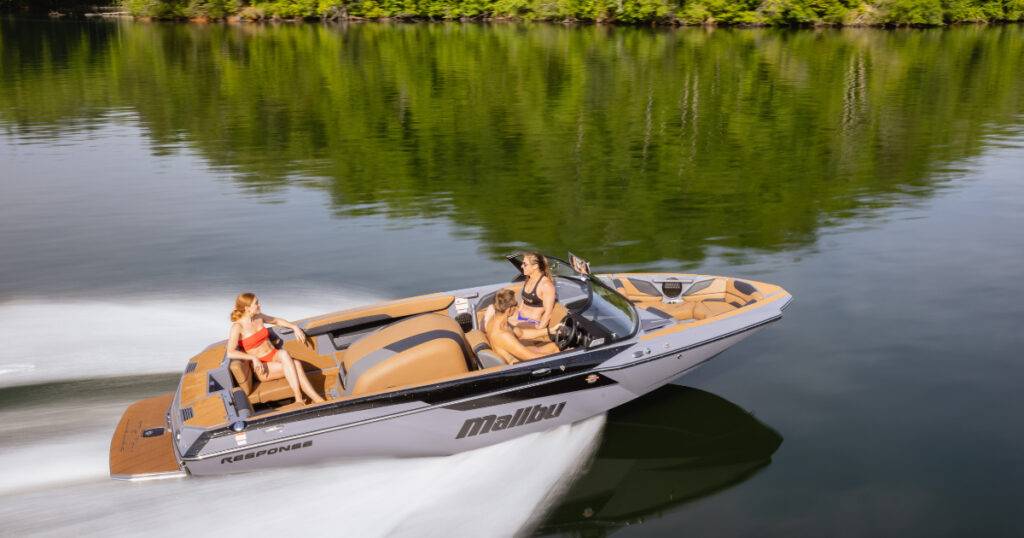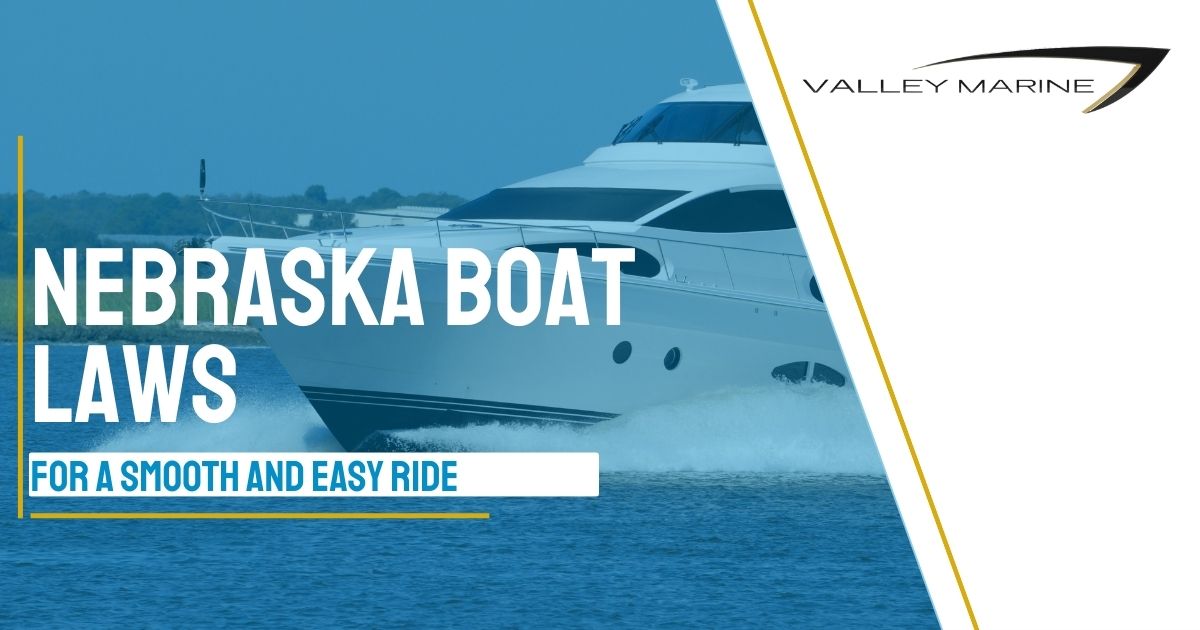Why You Need to Learn the Nebraska Boat Laws
Do you know all the Nebraska boat laws you need to follow for a safe and smooth ride?
Hitting the water is always more fun when you follow safe boating practices. Refreshing your knowledge on Nebraska’s boating regulations ensures you’re prepared before launch.
This blog serves as a helpful reminder of the rules before your next voyage.
In Nebraska, boating is a popular activity, with over 180,000 registered motorboats in the state. But before you shove off from the dock, it’s important to know the laws and regulations that govern boating in Nebraska.
Following the rules ensures you stay safe while making the most of your time on the water.
We combed through the 2023 Nebraska Boating Guide to highlight the key laws and tips boaters should know.
Read on for everything you need to cruise Nebraska waters without any trouble.
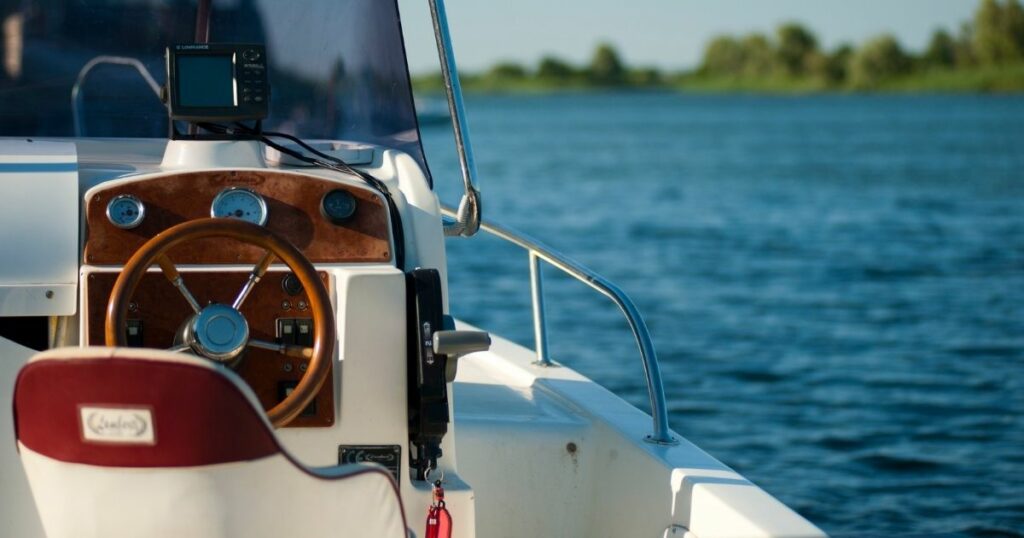
The Importance of Understanding Nebraska Boat Laws
If you already own a boat, understanding Nebraska boat laws will help you maintain your boat under the guidelines that the state requires. This will prevent costly fines and possible accidents.
However, if you are looking to buy a boat, familiarizing yourself with the rules and regulations will help you make informed decisions on the type of boat you’ll want to get.
Our team at Valley Marine can help you make the best decision to get the boat you need and want while still making it easy to meet all boat regulations required by law.
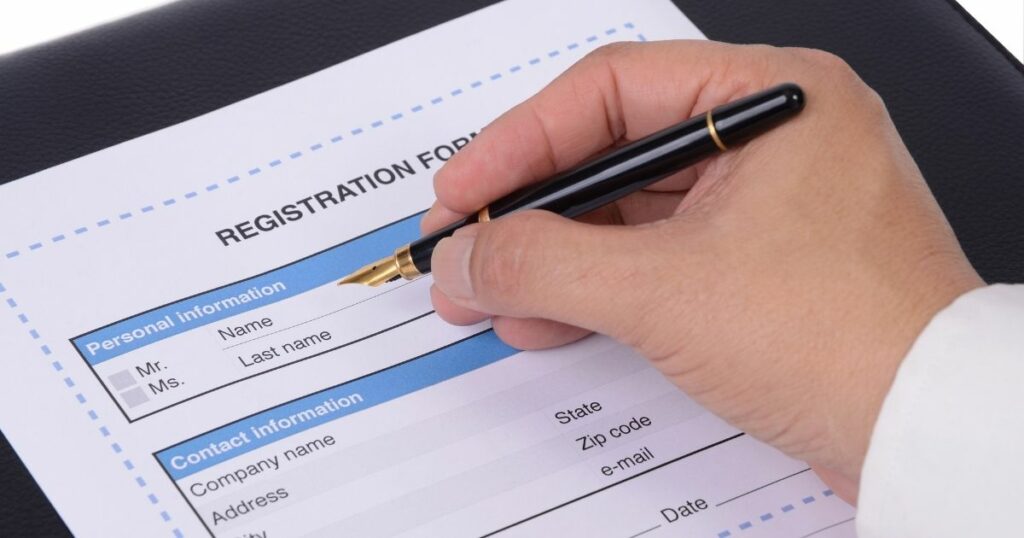
Registering Your Vessel
First things first – make sure your boat is properly registered with the county treasurer in your county of residence. All motorized boats in Nebraska, even little electric trolling motors, require registration. The registration length is three years, and renewal can be done online.
Your registration numbers and validation sticker must be properly displayed on the forward half of the boat hull. Registrations aren’t transferable, so even if you just bought a used boat that’s currently registered, you need to register it in your name within 30 days.
Certain boats like sailboards, inflatables, and race boats used in competitions can be exempt from registration requirements. But when in doubt, it’s best to register your vessel. Non-residents also need an Aquatic Invasive Species Stamp on their boats before launching from any Nebraska ramp.
Boat Safety Equipment
Nebraska law mandates the presence and proper functioning equipment of the following equipment in every boat to ensure safety.
The specific safety equipment required on your boat depends on the size and type, but here are some of the essentials:
Life Jackets/Flotation Devices
Life jackets or personal flotation devices (PFDs), are essential safety equipment. They are designed to keep you and your loved ones afloat in the water and prevent drowning in the event of an accident or emergency.
Vessels less than 26 feet need a wearable life jacket for each person plus a throwable floating device. Larger boats need offshore life jackets
Wearing a life jacket can be life-saving, especially for non-swimmers or in situations where unexpected circumstances arise.
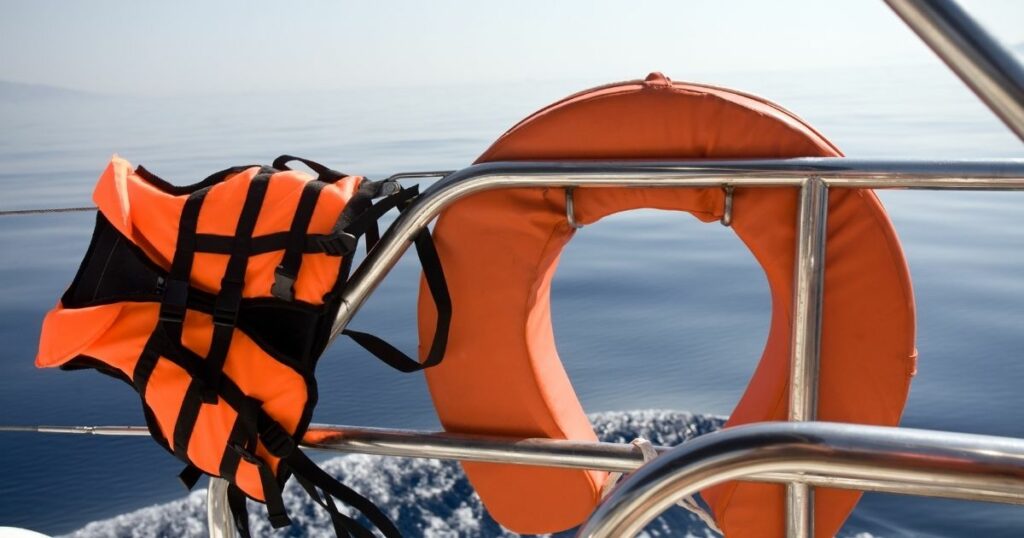
Fire Extinguisher
Why would you need a fire extinguisher in the middle of a lake? A fire extinguisher with an enclosed fuel tank, enclosed space, or enclosed engine is required in every boat.
Required for boats with closed compartments or fuel tanks.
It serves as a crucial safety measure to combat potential fires that may occur due to fuel leaks, electrical malfunctions, or other hazards.
Oars
Oars are important safety equipment, particularly for boats without an engine or when facing engine failure.
They provide a means of propulsion, allowing boaters to navigate and maneuver their vessel even if the primary mode of propulsion is not functioning.
Bailing Bucket
A bailing bucket is a simple yet essential piece of equipment used to remove water from the boat.
This is particularly important in situations where water enters the boat due to leaks, rain, or waves, potentially causing instability or sinking.
By bailing out excess water, boaters can maintain buoyancy and ensure the boat remains safe and stable.
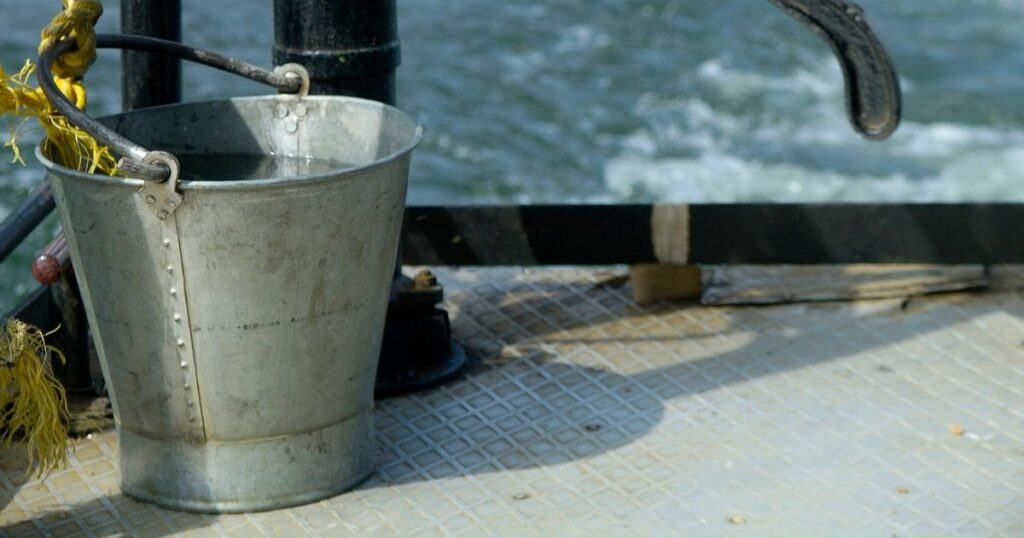
Muffler
A muffler is a device used to reduce the noise generated by the boat’s engine exhaust. It plays a crucial role in limiting noise pollution.
Compliance with muffler regulations helps protect the environment and maintain a peaceful atmosphere on the water.
Whistle or Bell
A whistle or bell is a sound-producing device required on boats to alert other boaters of their presence, especially during periods of reduced visibility.
The sound signals serve as a means of communication and can help prevent collisions or accidents.
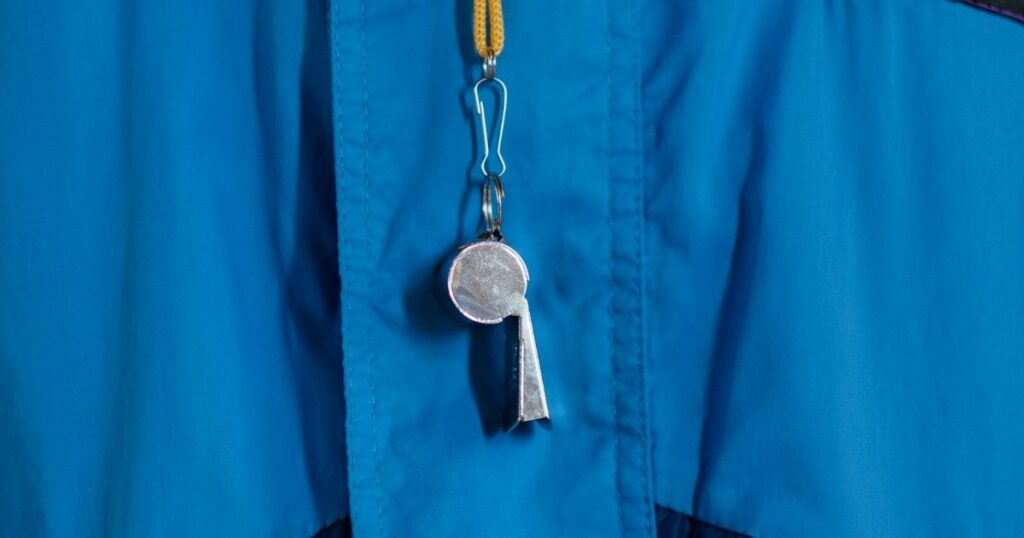
Backfire Flame Arrestor
A backfire flame arrestor is a safety device installed on the engine’s air intake system to prevent backfires from igniting flammable fuel vapors in the engine compartment.
It reduces the risk of engine fires caused by backfires and improves overall safety on motorized boats.
Ventilating
Adequate ventilation is crucial to dissipate any fuel vapors, reducing the risk of fire or explosion.
This helps maintain a safe and breathable environment for boaters and ensures the longevity and performance of the boat’s systems.
Adhering to these requirements ensures the safety and well-being of everyone on the water.
Anchor Light
Display a white light visible for 2 miles to avoid collisions after dark.
Nebraska Boat Laws and Registration
In Nebraska, all motorized boats in any public or private waters must be registered. The only time you must not register your boat is in the following scenarios or if you own the following boats.
- Motorboats registered in another state and housed in Nebraska for less than 60 consecutive days
- Vessels owned by the government or political subdivision
- Racing-type motorboats when competing in state events
- Vessels documented by U.S. Coast Guard
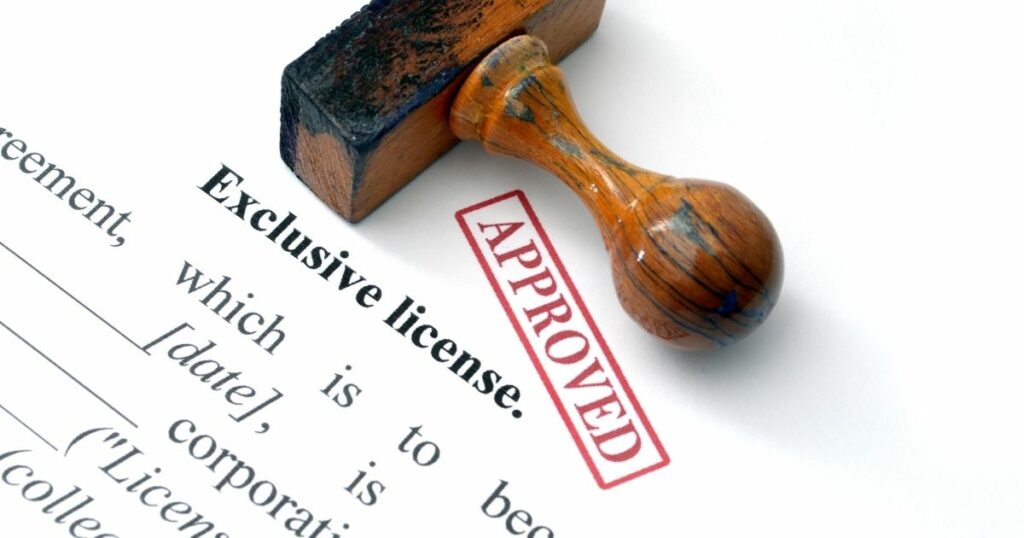
New Registrations and Renewals
New registrations and renewals can be processed through the county treasurer or the Nebraska Department of Games and Parks.
If you are registering a new boat or renewing your existing registration, you can also choose to renew your registration online.
Smooth Sailing: Nebraska Navigation Rules
Besides having the proper gear, following basic navigation rules helps avoid mishaps on busy waterways.
Scan the water before shoving off to understand where hazards may lurk. Pay attention to marker buoys – red means keep that side to your starboard (right) when headed upstream, while green marks the port (left) side.
When two power boats meet head-on, each should steer to their respective right. Powerboats must yield to manually powered craft like canoes and kayaks. And sailboats have right-of-way over power boats.
It also helps to know whistle and horn signals. One short blast means you intend to pass a boat ahead of you on the right. Five short blasts signal danger or need for assistance. Just no unnecessary whistling that could confuse other boaters.
Boating in Specific Locations in Nebraska
While there are general state regulations required for all boaters, these could change depending on the zone you are planning to visit.
Make sure to research the specific regulations before attending a reservoir, state park, or any other area that might have different regulations.
Nebraska’s state parks offer beautiful waterways for boating enthusiasts to enjoy. These regulations usually include speed limits, no-wake zones, designated swimming areas, and requirements for noise control.
Familiarize yourself with these regulations to ensure compliance and to maintain a safe and enjoyable boating experience for all.
Nebraska Boat Laws in Reservoirs
Nebraska’s reservoirs are popular destinations for boaters seeking scenic surroundings and recreational activities.
Similar to state parks, reservoirs may have specific boating laws and regulations in place.
The Nebraska Game and Parks Commission’s Boating Guide can provide detailed information on the specific rules and guidelines applicable to each reservoir, ensuring that you
can navigate these waters responsibly and legally.

Mind Your Speed
While it’s fun to open up the throttle when you have ample space, caution is required in certain areas. Obey posted speed limits and no wake zones (5 mph or less). Creating a wake near boats, docks, and swimming areas causes damage and safety hazards.
It’s also illegal to operate personal watercraft like Jet Skis between sunset and sunrise in Nebraska. And take it slow in areas like marinas and launch ramps.
Practice common courtesy, and safety comes naturally on the water.
BUI Doesn’t Float in Nebraska
Boating under the influence carries stiff penalties in Nebraska. Just like driving on land, it’s illegal to operate any boat with a blood alcohol content at or above .08 percent. Penalties include fines, possible jail time, and loss of boating privileges.
Avoid tragedy and only boat sober. Have a designated captain who stays alcohol-free. And wear life jackets since intoxicated passengers are at greater risk of falling overboard.
Need a Boat?
Looking for a new boat? At Valley Marine, our knowledgeable team can guide you through the process of finding the ideal boat that meets all the necessary requirements.
Let us help you ensure that the boat you choose is equipped with the required safety equipment, meets all other legal obligations, and starts enjoying your life out in the water.
